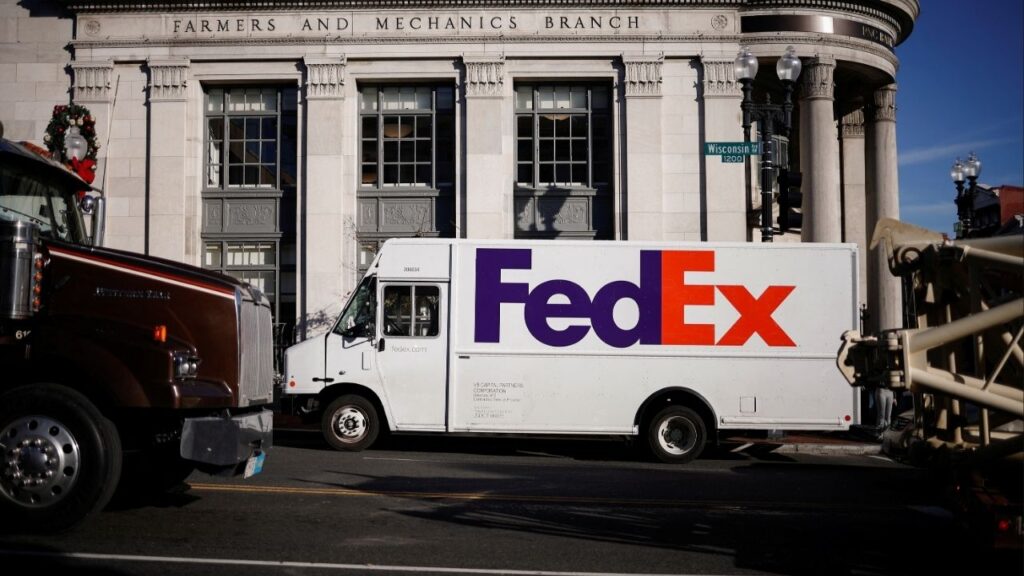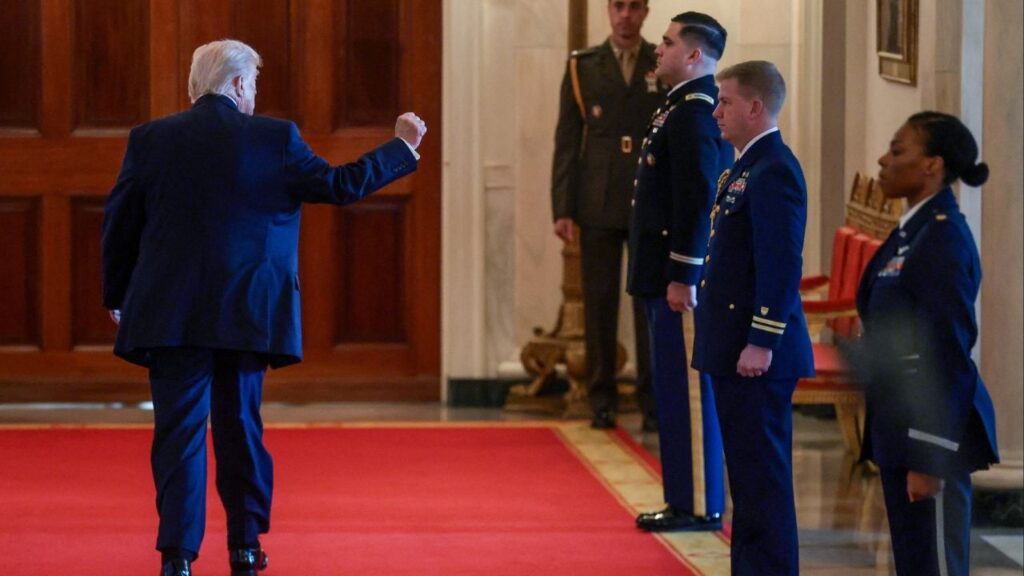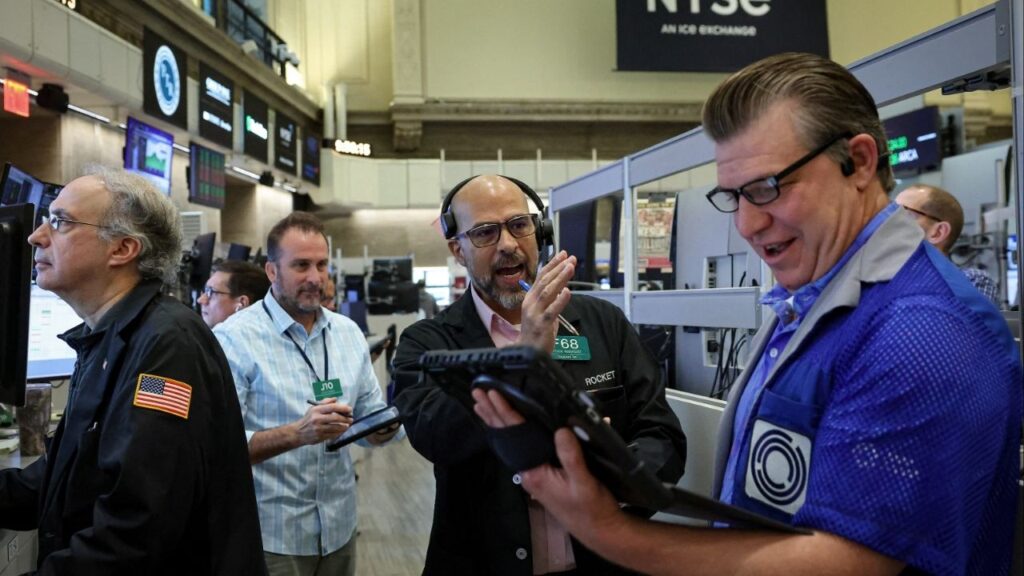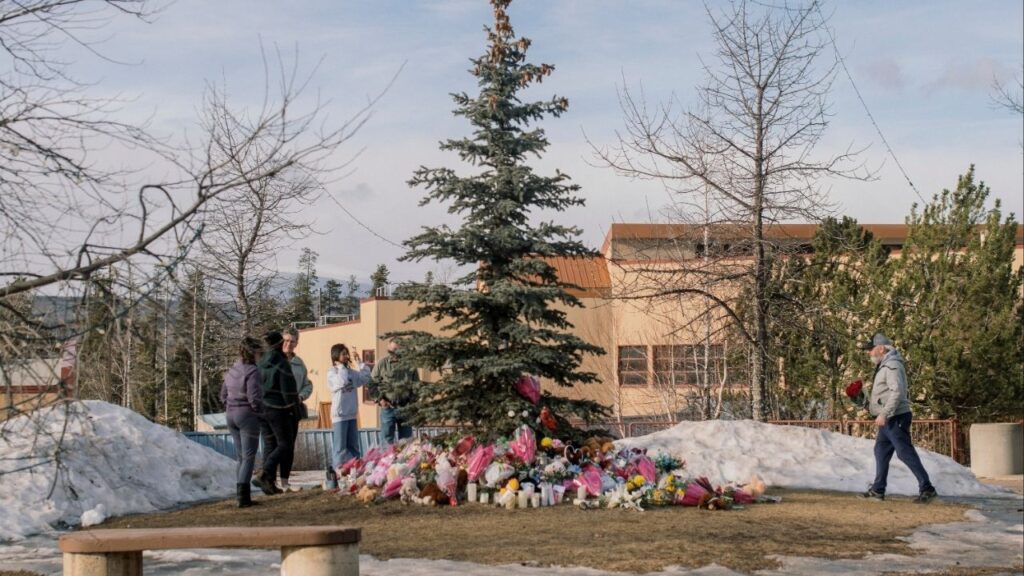Share
GV Wire talked to Fresno State philosophy professor Andrew Fiala this week about the protests that have erupted nationwide and around the world in the wake of the death of George Floyd, a black man, in the custody of Minneapolis police.
Fiala, who directs the university’s Ethics Center, talks about the nation’s history of addressing social change, whether Floyd’s death could be the catalyst for change, and why public schools are key players in addressing racial equality and diversity — and how the coronavirus and subsequent quarantining are “exactly the wrong thing for racial healing.”
(Editor’s Note: Fiala’s answers have been lightly edited for clarity and brevity.)
GV Wire: Why are these widespread protests happening now?
To see police brutality happen in real-time, more or less, people are outraged, and justifiably so. So this is part of a longer story. This kind of stuff’s been going on for a while. And every time something like this happens, there is an expression of outrage. And then it continues. We’re kind of in this cycle, right? It just seems to be cyclical. I lived in Los Angeles in the ’90s during the Rodney King episode. I lived in Long Beach, California. And the riots broke out. They came right down the street from me. And how long ago was that? Twenty-five, 30 years ago? So it’s at least been going on that long. And people that are older than me know it’s been going on since time immemorial here in this country. We have this problem of racial divide in our country, and we have a problem of police power and how the police work. It’s an ongoing problem.
You didn’t ask me, but I assume you might like me to share my opinion about all of this, which is I think there’s a good news story, which is that when once that event happened in Minneapolis, the police were immediately fired. They’ve now been arrested or at least the main perpetrator has been arrested. And that response shows that the system is becoming responsive to these issues. It’s obviously inadequate after the fact. It would be better if we could prevent this kind of stuff from happening. But I think, in this case, it was quite extraordinary how fast the response was. You know, there was this previous event in Georgia … the shooting of this jogger and the police didn’t investigate it properly. You may know part of that story. (In) the Minneapolis case, when bad things happen, this is sort of what we want to have happen in terms of the institution. So if anything, that’s part of the good news of this. But it’s still obvious, the feeling of hurt and outrage among all Americans about this.
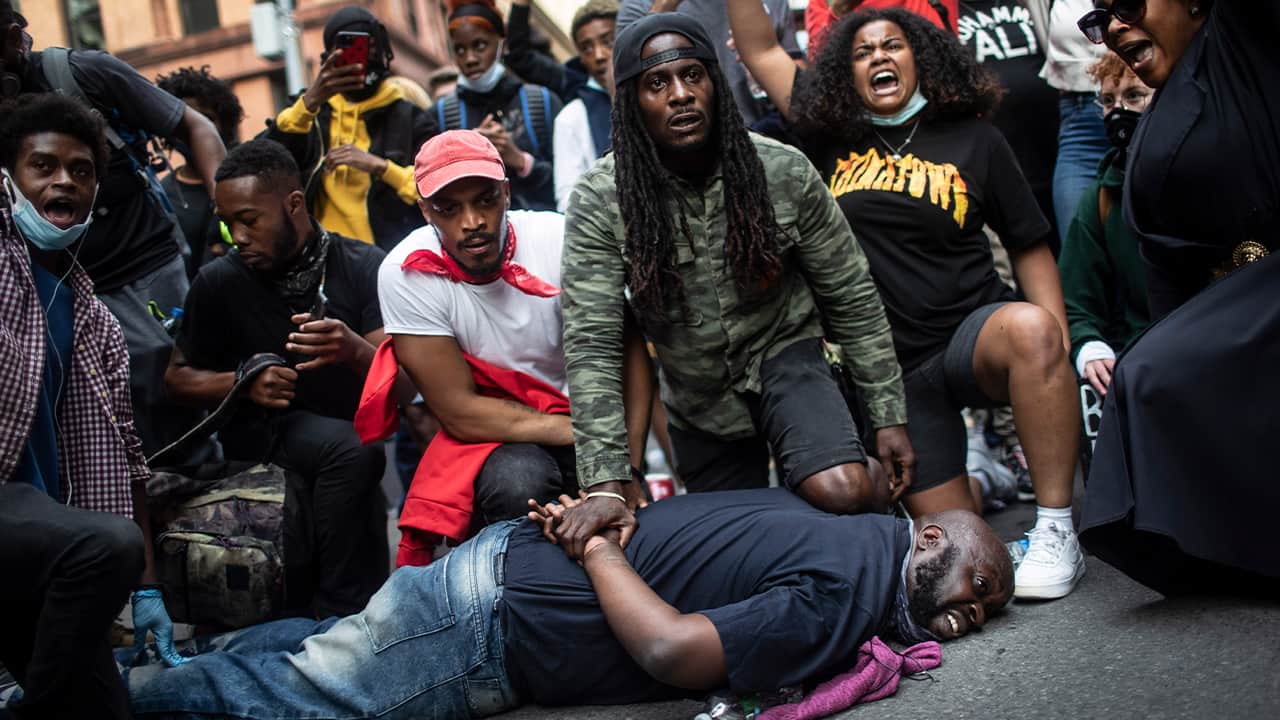
In some cases, the protests seemingly have been co-opted by people who are creating chaos and are more focused on causing damage or in stealing than in seeking social justice.
History is going to have to sort out what’s going on this week. My guess is that there’s a lot of instigators on all sides. Who knows if maybe even Russian trolls are involved in this and sending out tweets to try to get people riled up. This is part of the big problem in our country, which is that we’re so divided and so distrustful of one another. And we know that there are outside agents from multiple angles interfering in our lives and in the political experience. Let me put it this way. Does anyone really know what’s going on and who’s organizing all of this stuff? I think not. I think there’s a lot of mystery behind this and the situation that we’re in as a result of the last three or four years or more is that we don’t even know who to trust in terms of the authorities. So certainly, there’s been this problem of whether or not we can trust what the White House says about a whole bunch of stuff. That trickles down, that kind of distrust and lack of civility trickles down until people don’t know what the heck’s going on. But they’re outraged and justifiably outraged. And then you throw on top of this: Everyone’s been stuck at home for three months. There is severe unemployment, lack of hope, lack of opportunity. And that tinder box was waiting to explode, in my opinion. And it’s sad, it’s just sad. Part of this, again, is lack of leadership at all levels. But certainly at the highest level. We need healing. We need hope. We need inspiration. We need truth-telling. And we need people we can trust. And there’s this profound distrust of everything, all the institutions, including the police. People are distrustful of the police. That’s no way to live in a country. We’re seeing it’s not working. Whatever we’re doing is not working right now.
Perhaps it’s not surprising then, given the conditions we are in as a nation, that distrust of police and government is more prevalent?
We have social media in the mix that is instant and inflammatory. What’s a tweet, 140 words or something? And basically all you can say in a tweet is “show up here and let’s do something.” I haven’t done the research. I don’t know what the demands are of these protests other than equity and justice, which are the right demands. But what’s the strategy behind this? What’s the leadership? And, again, not trying to judge because I haven’t done all the research. But if there is going to be lasting social change that comes out of this kind of stuff, there needs to be a unified set of strategic points, shared tactics, a shared set of values about what’s happening. None of that has emerged yet. It probably will. I have no doubt that good people are really trying to figure out how to harness this kind of energy. But right now it’s just the outcry of pissed-off people, and again, justifiably so. I think both with terms of the violence that was witnessed in Minneapolis and then the frustration of this virus going on, it feels like we’re living in a nightmare. And so then the little spark hits and then everybody goes crazy. Yeah, it’s sad and inevitable, but it’s missing part of the history of effective social protest. It has to involve a strategic set of actors who have short- and long-term goals and weave it all together with some sort of theory, and some demands and so on.
An interesting parallel, I don’t know if you’ve been thinking about this, but Hong Kong has also been going through a bunch of tumultuous issues. And in Hong Kong, at one point early on, they actually had some strategy in these six demands that they were making. Because we’ve seen the crackdowns there. But that’s at least a recent model. I hate to say effective because it wasn’t effective. And then throw this into the mix, where the American protesters and whoever else are watching what’s happening in Hong Kong, and seeing that no matter what they do, it has no effect. And the authoritarian regime cracks down anyway. So there’s a sense of despair. What, is this just going to continue to happen? Are we going to continue to have a dysfunctional society? Where’s the hope? For strategies to work, there has to be hope that they’ll be effective. And without hope, you know, we end up with a big, big problem.

So we need someone like former President Obama, who promised hope and change?
Obama’s not coming back. But you need somebody, you need some idea that what you’re doing can have some effective impact. And I think some of the, I would use the word nihilism, some of the nihilistic violence where people just want to blow stuff up, that goes nowhere. And it has no effect other than to create crackdown. The people that instigate violence ultimately end up undermining the long-term goals. And then you need to have someone that weaves it all together to say, how are this moment and this week and this month connected to a larger set of issues? As far as I’m concerned, I haven’t done a lot of research, but I haven’t yet heard the voices emerge that are going to harness this energy and turn it into something positive. I’m waiting for that.
It seems as if America’s outrage when police kill a black person is temporary, if recent history is any indication. Why have we not already seen more social change stemming from earlier incidents?
Things were OK until three months ago. It’s still not completely OK, because this kind of police brutality and violence and so on, it’s a problem. Now, after the pandemic and the unemployment, nothing’s OK. There are a lot of people who feel that nothing is going well and who lack hope. It’s school kids who don’t have access to a regular life where learning occurs. It’s the digital divide. We know we have that here in Fresno, the Central Valley, a profound problem of getting access to education for underprivileged children. And those underprivileged children live in families who can’t pay the rent, who are losing their job because they work at low-level, service-level jobs. This is bad. We’re in a bad situation. And Black Lives Matter, of course. I think we’re going to see some evolution of that. My guess is that we’re going to see a new hashtag, whatever it’s going to be. But it needs to be that poor people matter, that unemployed people matter, that children who lack education matter. There’s all of this stuff now within the last three or four months that people who have immune problems matter. Now, this whole thing about the masks, the reason to wear a mask is you don’t want to (infect) someone who’s sick, who’s old, or has diabetes, who is going through chemotherapy. There’s so much of this in our country about people that matter that are now being ignored, systematically ignored. I think it’s going to be a long, hot summer. Here we are, (in June), and this is what we’re talking about. Then what’s going to happen in August, (when) the political conventions unfold? Wow, that’s gonna be interesting. And let alone all the way through November and the election. Yeah. It’ll be an interesting year, to say the least.
South Africa used Truth and Reconciliation forums for the nation to confront the evils of apartheid. Some have called for similar forums in America, but it doesn’t seem like all Americans would support that.
Or that it would happen here. On the one hand, I think there is good news in the background that we overlook, which is those police who are involved are now being investigated for murder. That seems to be reasonable. Well, we have to see how the trials come out. There’s a justice system in this country that matters. The problem is the justice system is slow and people want quick reaction. People want quick change. And frankly, social change is incremental. It’s a court case here, it’s a piece of legislation in one state, it’s something that happens in Washington. It just takes time and effort and sustained energy. But the good news, again, is that we have seen some of those incremental changes add up. I mean, think about voting rights for African-Americans after the 1960s, think about women’s rights. We think about the political representation for young people with the change of the voting age down to 18. Things have happened to make our country better. There is a bit more justice and equity than there was in the 1950s. We don’t want to lose sight of that. And that was all the result of hard work (such as) Brown vs Board of Education in 1954. In the ’50s to the late ’70s, by the time people start catching up with this stuff — busing and integration of schools — that’s 20 years. This stuff takes a long time to gestate.
I think, again, part of the hope, some voices need to remind us that progress has been made, but there’s always more progress to be made. And the worry is that some, especially young people, who are out of a job and out of luck, they may be thinking, look, the revolution needs to happen tomorrow, we’re not going to tolerate this anymore. And I’m sorry to say, it doesn’t work that way. There is no revolution. There’s only evolution, there’s incremental change. And it’s easy for me to say as an old person. I’ve been having this great debate with my son about this, he’s a recent college grad, and he’s like, “No, we want change now!” And there’s something to that. I admire that youthful energy. But to change huge systems, we’re talking about changing the justice system, to pass legislation, prison reform, all of this stuff, public health, I mean, this requires years and years of effort. And it’s never going to turn out perfect because everything in political life is a matter of negotiation and compromise. It’s difficult, to say the least. I’m a political philosopher, I talk with students about this all the time. The revolutionary urge that we all have is wonderful. And then it hits like the dead end of institutions of policy. And what is really unfortunate is if that revolutionary urge just gives up and people say, “Oh, well, we can’t do a darn thing about it.” The thing is, we have to churn through that cul-de-sac. We’ve got to keep turning the wheels of the system and eventually hope they turn in the right direction. It’s not satisfying, though, if it’s your community is being assaulted by police or rioters or what have you. This is difficult stuff.

Is change likely when people either are unaware of or don’t recognize racism, or they recognize it but continue to perpetuate it anyway?
There are really two levels of this. One is about individuals and the psychological, spiritual, whatever is going on in the mind of racist people. How do we change people’s psychology? That’s a difficult question. Then there’s a different level, which is about the institutions and the structures. The good news is that the institutions have changed somewhat. The institutions have become more equitable, not perfectly so. There still are racial disparities in prison sentencing, for example. We know that more black and brown people are in jail than white people, percentage-wise. We know that there are these disparities. So the institutions are not perfect. The institutions need to be changed and challenged. And then we also need to change people’s psychology to make people kinder, gentler and more compassionate and more loving and less racist. Both of those are huge projects, and one requires a lot of smart politicians, lawyers, legislators, judges. So the other one requires all of us, including especially teachers, clergy, religious communities, news media, a sustained cultural effort to make people nicer. And that’s everyone’s work. What are we going to do coming out of this? Well, we have to go back to the golden rule and everyone needs to say treat other people as you want to be treated. And that needs to be reiterated again and again and again. At the top level, we need to hear that coming out of the White House. We need to hear local authorities talking about that, and then we need to hear moms and dads teaching that to their kids. The institutional-structural part, that’s kind of specialized work. That requires people with law degrees. But the spiritual psychological work, we can all do that. And we have to admit we’re not perfect too. As you said, it’s everywhere. People have all kinds of hate and misunderstanding and stereotypes — stuff’s in our minds. It takes constant effort to get beyond it. And nobody does it perfectly.
What if we made the watching of “Mr. Rogers’ Neighborhood” mandatory for all Americans?
It’s not to say we need only Mister Rogers, that would be silly and absurd. But the problem is we’re not hearing that voice enough, that voice of kindness and love and justice. There’s all this other really bad, terrible stuff. And kids are hearing it, and young adults are immersed in it, because whatever their corner of the internet is, it’s a self-reinforcing circle. And that’s going to be a big challenge, a cultural challenge. How do we overcome the voices of hate so that the voices of toleration, justice, and love can be heard? It’s a tough one.
I interviewed two leaders of Sunday’s march and rally, which was organized by the Fresno State chapter of the NAACP, and noticed that both of them come from military families. The military was one of the first institutions in the U.S. to integrate after World War II. I wondered whether their backgrounds helped imbue in them the confidence to be the leaders they are today.
I think you’re exactly right about the unifying power of the melting pot. You know, the military’s one of those. The other, probably more profound I would argue, is the public schools. When kids are going to class with one another and forced to interact with people who don’t necessarily live next door and look like them, I think that’s huge and profound. My wife’s an elementary school educator and I’ve gone into her classroom every year and worked with the kids. And she teaches fourth grade. Fourth graders, their minds are malleable. They haven’t learned this junk yet. It might reflect what their parents are teaching them at home, but young people don’t know the difference between black and white and brown and all the rest of it. Kids just want to play with other kids and they want to learn. You said Mr. Rogers earlier, but it really starts at an early age. And we kind of know the solution. The schools have been doing a great job of teaching tolerance, compassion, and all the rest of it.
Through our Ethics Center at Fresno State, we have a close alliance with the Bonner Center for Character Education. So we’ve done lots of interviews and looked at lots of schools across the Central Valley. The schools in our area are wonderful. You know, for the most part, every single teacher that works in public schools interested in creating social justice is interested in treating all human beings with dignity and respect. That’s going to be the solution. And let me just say this, one of the dangers of where we are with COVID, that’s falling apart. Kids are at home now without that sense of togetherness. And I’m worried, you know, that if we don’t find a way to bring everyone back together, the tribes are going to break off again. We’re going to see a lot more animosity. And higher ed also. So we moved to online classes, virtual learning. It’s OK, but it’s not the same as walking into class with someone who’s different from you, and turning to a neighbor and talking things over. It’s just not the same. This COVID quarantine is exactly the wrong thing for racial healing, I have to say, unfortunately.

Is there anything else you were hoping to share?
I would just say my research area is in the field of nonviolence and I’m very interested in the Gandhi-King tradition. And I think it’s time. It’s always time. But there a special time now for us to return to that really deep history of nonviolent social protest. And there’s a lot of strategies to be learned from those people in our own history: Martin Luther King, Henry David Thoreau … about how to do social protest in a way that’s democratic, nonviolent and actually is effective. And there’s just one worry that I have about the folks who are looting. I actually believe it’s hardly anybody. I mean, I think these are fringe, that the violence is part of a fringe group. But there is always something to be learned from the history of nonviolence. And, what you learn is, it works if it’s strategic, if it’s sustained, if people are trained. You don’t just learn how to do any of this stuff overnight. You need some systems that prepare you and train you in it. So maybe one of the good things that will come out of this is people will take a look back and see what Gandhi and King and the rest of those folks were doing and try to come up with better strategies than burning stuff down. One hopes.
[activecampaign form=19]
Categories
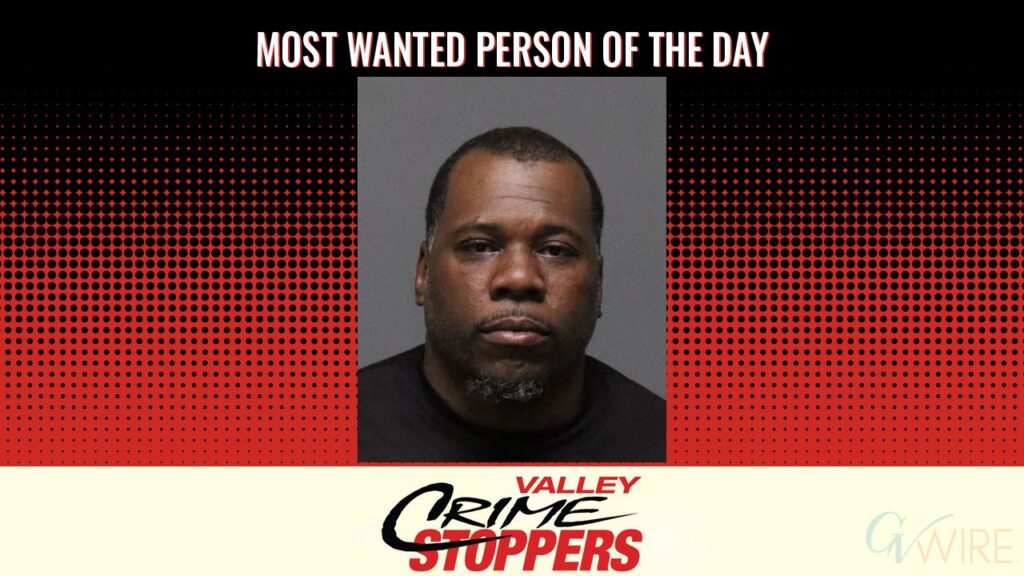
Valley Crime Stoppers Seeks Domestic Violence Suspect

US Consumer Confidence Improves in February

Pentagon Races to Spend $153 Billion in Added Funds for Military
